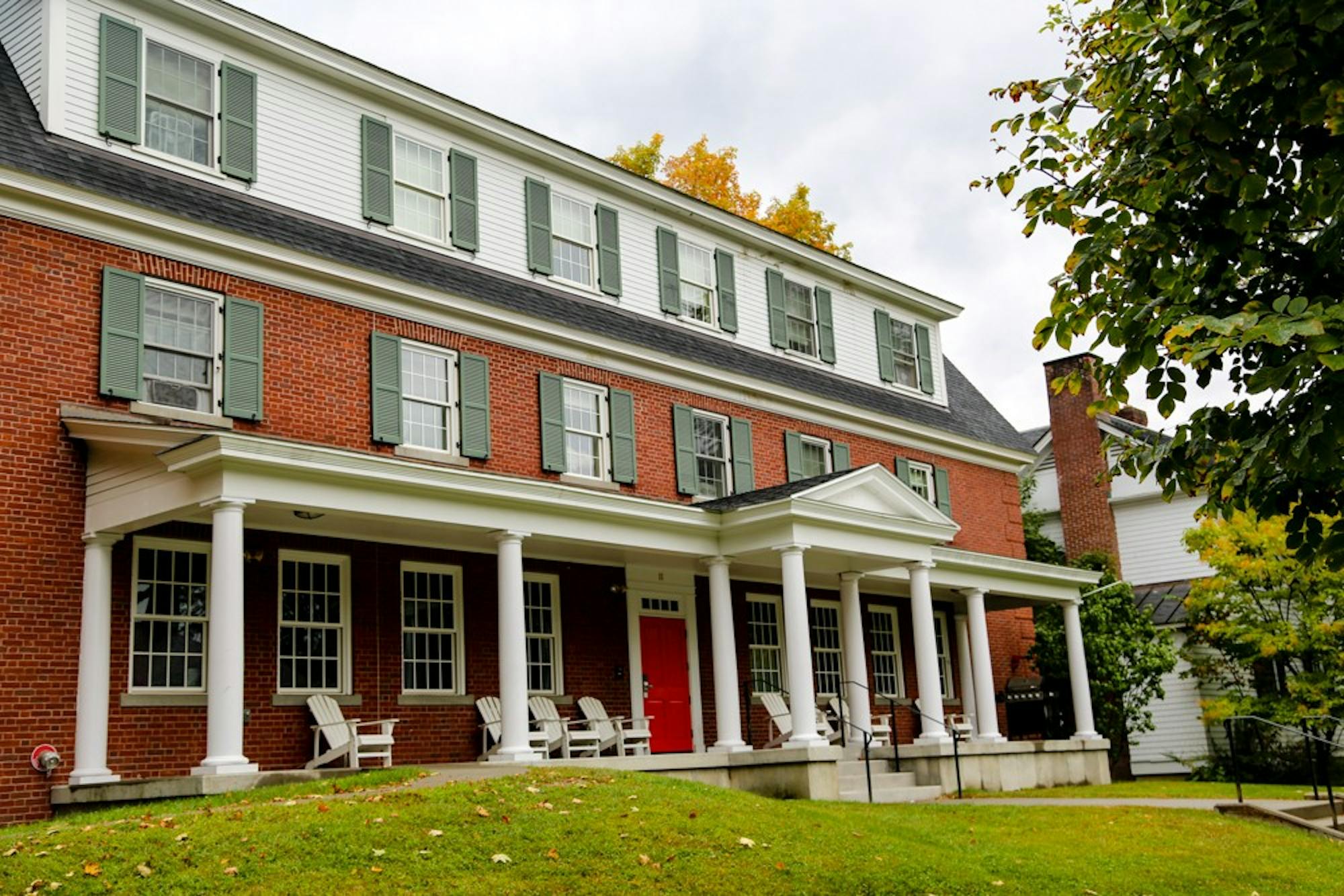Alongside the usual pressure of finals week, some students living on campus this term face an additional stressor — isolation. With 106 students in on-campus isolation or quarantine housing as of Thursday, some have expressed concern over balancing mental health and schoolwork as they approach the end of the term.
William Glovsky ’23 was living in South Fayerweather Hall when his roommate received a positive COVID-19 test on Feb. 24. According to Glovsky, he was listed as a close contact by his roommate, and Dick’s House gave him a rapid COVID-19 test, which came back negative. As a result, Glovsky was transported by the first custodial responder team to quarantine housing in Channing Cox Hall that night.
Glovsky said that when he moved out, he was only allowed to bring “essentially anything [he could] carry,” such as clothes, textbooks and some bedding, though sheets are provided. He got tested again on the following day after experiencing a cough but received another negative result.
According to College spokesperson Diana Lawrence, students who test positive enter into isolation and are not retested, whereas students in quarantine may be tested multiple times depending on their exposure history and recent testing. Students who test positive in quarantine are moved to isolation.
COVID-19 task force co-chair Dr. Lisa Adams and College Health Service director Mark Reed noted that the College offers on-campus isolation and quarantine housing, as well as “support with food” to students who live off campus and cannot safely isolate or quarantine in their off-campus housing. The College charges off-campus students for these services, but Adams and Reed indicated that financial assistance is available.
While in quarantine, Glovsky said he can go on walks with one other person. However, he cannot enter dining facilities and must order his meals ahead of time through an online portal run by Dartmouth Dining.
Glovsky said that although he is lucky to have tested negative so far, he has found schoolwork “a lot harder” in quarantine.
“I'm working in the same general area where I eat and take leisure,” Glovsky said. “And then, when I take leisure time, I can't help but feel the nagging feeling that I should be productive. And so finding that balance has been really hard.”
Jack Poss ’23 received an email from Dick’s House on Sunday that he tested positive for COVID-19. He said that although he lives locally off campus, he chose to utilize on-campus isolation housing because he shares a bedroom with a roommate. The College is charging him $24 daily for meals, he added.
Poss is currently isolating in 11 Webster Avenue, the site of the Thought Project Living Learning Community and formerly Sigma Phi Epsilon fraternity. When the College approached him about any close contacts — or individuals who were within six feet of him for at least 10 minutes in the 48 hours prior to his positive test — Poss said that he offered the names and phone numbers of his roommates, who were later contacted by Dick’s House.
According to Poss, the current outbreak has “definitely not been productive for [students’] mental health.” He said that although the College has provided him with phone numbers for counseling and dean advising, he believes that the College could implement a credit/no credit system, as it did in the spring.
Katherine Lasonde ’23 was living off campus in Wilder, Vermont when she found out her roommate had tested positive on Feb. 22.
Lasonde said that one of the nurses at Dick’s House gave her the option of quarantining on campus, but she decided to spend the 10 days in her home mainly because it gave her “a little more freedom” to cook for herself and still live in the company of her housemates.
Lasonde went to Dick’s House on the seventh day of her exposure to do a COVID-19 test — which came back negative — before ending her quarantine on Thursday.
“Even though [quarantine] was maybe a slight inconvenience, it wasn’t that bad because I had a really good support system,” Lasonde said.
She added that part of this support system was a local Hanover mom’s group driving to the house to bring her and her friend a free dinner and some snacks one night.
“It meant so much that they would go out of their way to help some people that they didn’t know, and the food was also so delicious,” Lasonde said.
As for students in quarantine or isolation when the winter term ends, Adams and Reed said that an individualized plan would have to be considered for each student to ensure that they isolate and quarantine as per New Hampshire state guidelines.
Adams and Reed suggested that students work with the College Health Services to determine whether it is safe to travel home. Many students in this situation in the past, they added, have elected to stay on campus to complete their isolation or quarantine.
Singapore resident Vico Lee ’24, who was required to quarantine at the end of fall term because a close contact of his tested positive for COVID-19, stayed in Dartmouth’s on-campus quarantine housing during the transition to winter break. He noted that the College did not provide as much initial guidance as he had hoped for.
“I think the College was pretty slow about responding to the situation,” Lee said. “Maybe because it was in the fall and they were still trying to get everything in order, but we weren’t contact-traced. We went into quarantine ourselves.”
In addition, Lee said that he did not want to risk transmitting the virus to anyone and deemed staying in Dartmouth’s quarantine housing “the safest option.”
“I didn’t think it would be wise to be traveling around knowing that I could potentially be carrying the virus,” Lee said. “That was my main concern.”
When asked if the outbreak has changed Dartmouth’s quarantine or isolation protocols for next term in any way, Adams and Reed said that protocols are reviewed on an ongoing basis.

Daniel Modesto ’24 is the News executive editor. He is from Brooklyn, New York, and is a Native American and Indigenous Studies major modified with Latin American, Latino and Caribbean Studies.




